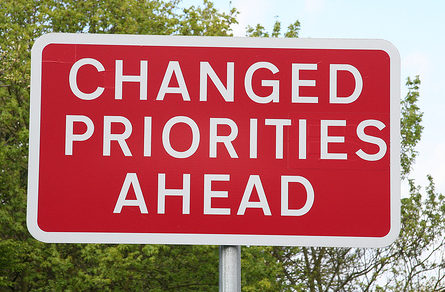Adaptation
- Home
- Nursing Work
- Adaptation
An important finding of my research was that nurses adapt constantly. It is a hidden, unrecognized part of nurses’ work- even by nurses themselves.

Nursing requires constant adaptation, which is often underground because nurses are expected to follow policies and procedures. An adaptation doesn’t mean a practice is bad or wrong. For example, best practice is that a blood pressure cuff goes on a person’s left arm. But what if a person doesn’t have a left arm? We could use the right arm, or a leg. This would be deviating from best practice, but it isn’t wrong. It represents a reasonable adaptation in a complex environment.
Nurses adapt at many levels. Adaptations can range from changing the way one procedure is done for one patient, up to changing how our healthcare system works. Every nursing role requires adaptation, no matter what kind of work a nurse does. You may start your day with a working plan in your mind… but anything can happen! When we recognize the adaptation that nurses do, we can better talk about it, teach others about it, and plan for it.

Nurses adapt their work for lots of reasons. One of the main reasons is patient need or request. This is especially true for patients outside the mainstream. Nurses told me that policies were designed for people who are white, English first language, literate, securely housed, supported, etc. However, a lot of people who need healthcare may be immigrants, homeless, non-English speaking, and so on. The policies just don’t work for those people, so nurses use their knowledge and judgement to adapt practice and provide patient-centred care.
Nurses also have to adapt when they face overwhelming demand or lack capacity (such as beds). Nurses found these adaptations very stressful, because the shortages might be due to a lack of funding, or other preventable cause. Nurses do extra work to bridge gaps in the system, but this isn’t always appreciated by people outside healthcare.
Nurses also adapt their work because they seen an opportunity to make things better, or they prefer one style of working over another. Adaptations can be for patients, nurses, or both.
So what?
A problem is, our healthcare systems requires adaptations to function, and penalizes adaptation at the same time. We need to provide person-centred care, but also follow the policy (or risk consequences). The issue is that giving both individualized care and following policies exactly is impossible. Policies are written one way, and humans are infinite. For people to benefit from patient-centred care, nurses need space to adapt safely.
One way this could happen is to look at how we write policies and legislation, and allow for flexibility. When we think about errors or root cause analysis, we can recognize that adaptations are essential in healthcare, and it is not always possible to predict the outcome. If we support nurses to adapt safely, we will have better outcomes than if we punish people for not following rules. Nursing students also need the opportunity to learn about adaptation, so that they can develop this skill in a supported way.
Recognizing adaptation is the first step toward understanding the value of adapting work, and helping nurses provide patient-centred care.

